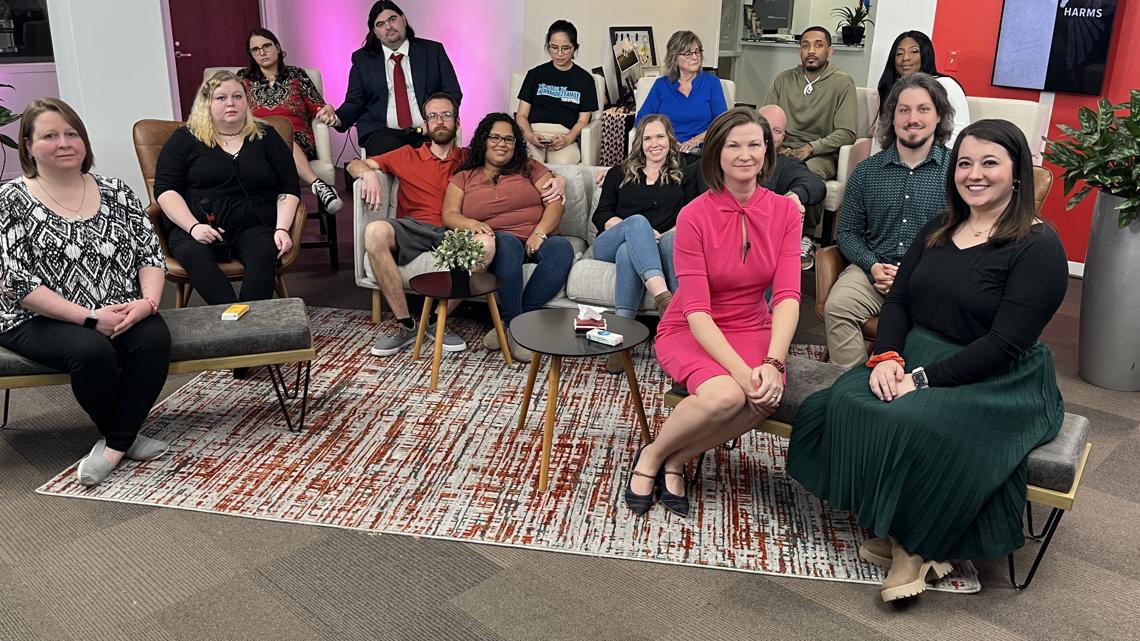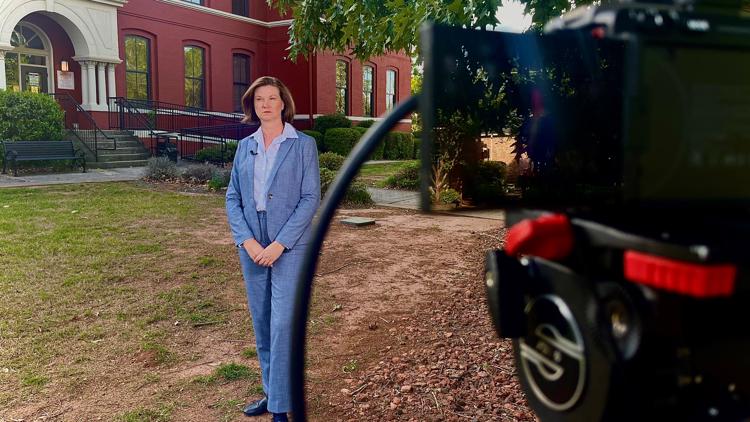ATLANTA — 11Alive Investigator Rebecca Lindstrom has shared the stories of thousands of Georgians across the state. In her latest series, Help That Harms, she talks to families who were blindsided when doctors accused them of neglect or abuse against their children.
Lindstrom shares what led to the investigation and her journey covering the dynamics of child abuse pediatricians.
Here's how she got here -- in her own words:
The case that keeps me up at night
People always ask me, “working on anything new? What’s the hot investigation right now?” I know they’re expecting to hear about a political scandal or unscrupulous contractor that’s run off with someone’s money. But my projects are rarely that easy to explain.
The idea for Help That Harms started with a family I’ve actually followed for more than five years. It’s honestly the case that keeps me up at night, my stomach in knots that our child welfare system is so inconsistent in its decisions and ill-equipped to think outside the box, that it tears families like the Stanleys apart – and keeps it that way.
I’m human, so as I get to know the families, especially those I talk with for a period of time, a natural empathy builds. The Stanleys' oldest son died mysteriously one night. The state claimed it was abuse and there was certainly evidence to believe that was the case. But the parents insisted they had never harmed their child and it was an undiagnosed medical condition that had caused the injuries.
While the family never faced any criminal charges, Georgia’s Department of Family and Children Services, DFCS, convinced a judge their remaining living children were not safe. One by one -- they were taken, put into foster care, and two of them were eventually adopted out. In 2022 the couple had another baby. She was also taken a few weeks after birth.
Telling the story
The court felt the Stanley's children weren’t safe if the parents couldn’t show remorse for the abuse. But the parents counter, how can they show remorse for something they didn’t do?
Parents are accused of abuse or neglect and lose custody every year. But when I heard about another family, this time with foster parents within the child welfare system joining forces with them to declare the state had it wrong, I was intrigued.
This time the parents had taken their baby girl to the hospital concerned about her swollen leg. Doctors found fractures and accused them of abuse. These parents were accused and indicted and given strict bond conditions that limited their contact with their children and each other.
As I talked with the Hernandez family and heard their theories on the medical conditions that could have caused their daughter’s fractures, I also saw the barriers the hospital and child welfare were putting in their way to rule these options out.
Once again, parents were at risk of losing their children without the ability to gather the evidence needed to prove their innocence.
When my photographer and I both left our conversation with the husband, Matt Hernandez, we both looked at each other and said, “we have got to tell this story.”
Meet some of the families Lindstrom has spoken with in the interactive carousel below.
Living with fear
My manager felt we needed more than one or two families. We needed to show a trend and really identify where the system was veering from its mission to protect children and reunite families. She challenged me to find at least one more family experiencing the same thing.
Within a week, I had found nearly two dozen. They are in varying stages of the process.


Some have their children back, others have just been accused. All of these families live in fear. Fear that speaking out will lead to retaliation. Fear that if they don’t speak out, they will never see their children again.
Fear -- that no matter what they do, more families will experience this heartache.
The innocent ones and due process
When I tell people about Help That Harms, I almost always get one question. “Do you really think they’re innocent?” My response, “Yes. And no.”
There are sadly parents that abuse their babies and most probably lie about it, swearing they are innocent. Child abuse pediatricians can serve as a critical front line of defense for that infant.
But I do believe there are parents who are innocent, who get caught in the machine that makes up our child welfare system with no way to get out with their families intact. I don’t know how many families fit that category, but my gosh, if it was my family - one would certainly be enough.
To me, it doesn’t matter as much if these families are innocent (although if we've interviewed them in this series, there's enough supporting documentation to believe that they are). I’m not trying to get anyone off the hook. I’m trying to make sure they have due process before their family is destroyed. I want to ensure the medical community has examined all options so that the child gets treatment if necessary -- and if safe -- stays with their parents.
Finding the truth
To have faith in the process, we have to know that it works.
We need to look at the roadblocks and ask if they were put there to truly help the child? CAPs need to raise the red flag, DFCS needs to do an independent thorough investigation. And we have to stop assuming that if a parent can’t explain an injury, they must have maliciously caused it.
It seems if we really want to protect children and keep families together, we have to be passionate parties to truth. Not blocking it – but finding it.



